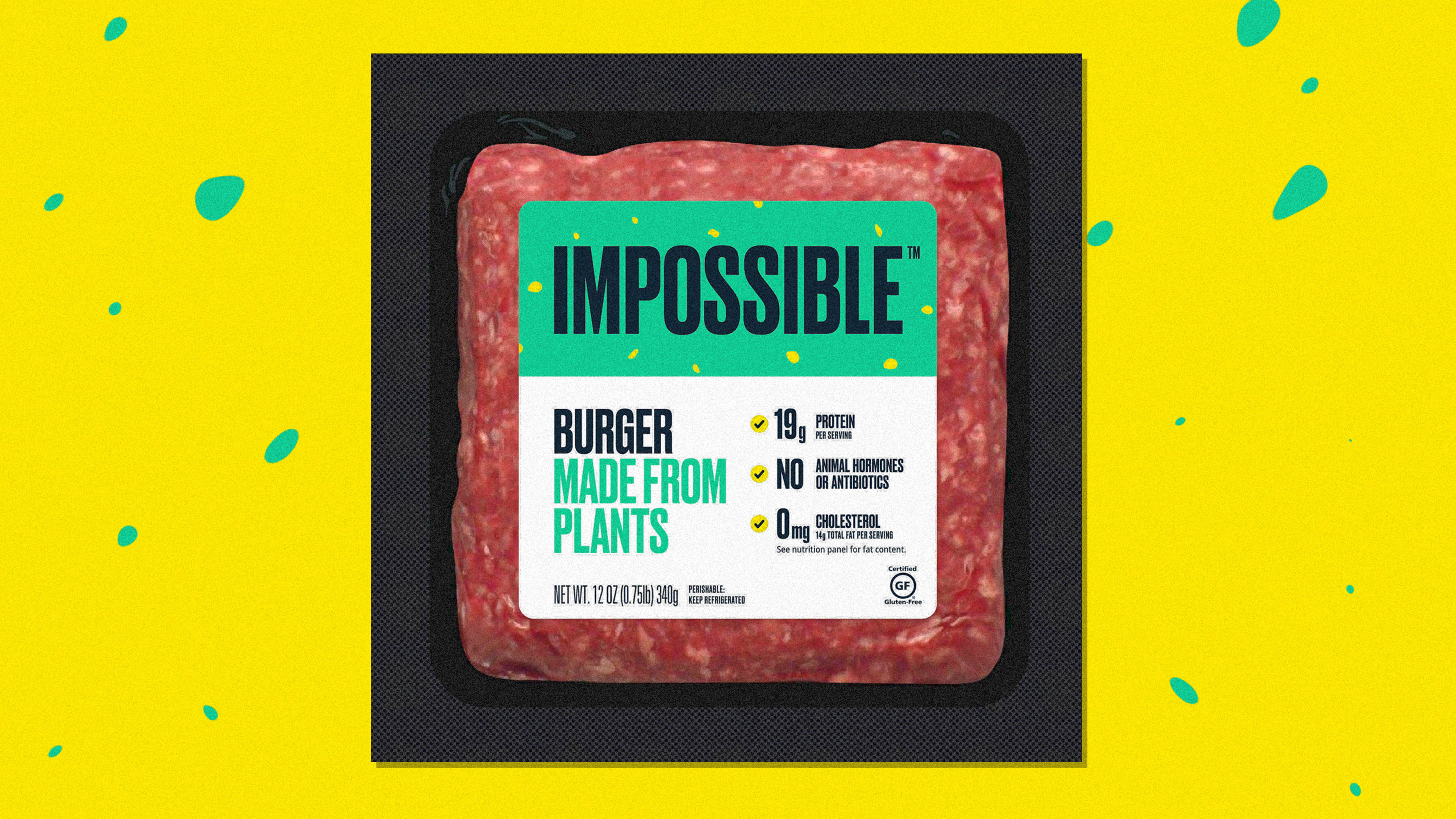It’s now possible to try cooking the plant-based, very beef-like Impossible Burger at home—but at the moment, only if you happen to live in Southern California. Beginning tomorrow, the plant-based meat will be available at Gelson’s, a grocery chain with 27 stores in cities including Los Angeles and San Diego. It’s the first time that the food, which is sold in more than 17,000 restaurants, will be available in supermarkets.
At stores, it will be sold next to ground beef. “It will be right where a meat eater would expect to find it, next to meat from an animal,” says David Lee, COO and CFO at Impossible Foods. The startup says that the vast majority of its customers are meat eaters, not vegetarians, and that’s by design; the company wants to tackle the enormous environmental footprint of beef by convincing those who most like meat to eat less of it. The texture and flavor, with ingredients like heme, a molecule also found in blood, make it similar enough to meat that when Burger King started offering an Impossible Whopper earlier this year, a Burger King executive claimed that the fast-food chain’s own staff couldn’t distinguish the burger from a regular Whopper.

The startup’s strategy was to launch the burger first in restaurants rather than retail stores, beginning with David Chang’s Momofuku Nishi in 2016. “We recognized even back then that the way in which a meat eater tries a brand-new product in a restaurant, say a Burger King, it’s super different than when that same meat eater finds herself or himself in a grocery store,” Lee says. “The grocery store is often a destination trip where they have a list, there are a bunch of brands, a bunch of aisles, and frankly, if you haven’t built a reputation as being delicious, many plant-based products have what we call plant-based anxiety or stigma for not tasting as craveable as meat from an animal.”
By contrast, when the company got the burger on menus at restaurants, people were lining up to try it, and that created the brand awareness that Impossible thinks it needs to be most successful in grocery stores. (Competitor Beyond Meat took a different approach and launched first at Whole Foods, later expanding to restaurants.)

The initial launch will be limited to Gelson’s, with some additional partners to be announced later in the month. The company says that it isn’t an issue of supply, though as demand for the burgers surged earlier in the year, there were shortages. In July, Impossible announced that it was partnering with OSI, a massive food manufacturer that works with fast-food chains like McDonald’s, to ramp up production, and it also expanded capacity in its own Oakland factory. Lee says that the company now has the capacity to meet its needs, although those needs will grow. The main reason for the limited launch, he says, is so that the company can test the product and iterate if needed.
“We wanted a partner who was willing to test and learn with us,” he says. “Because we recognize that we don’t know how the meat eater will react to this product, because they’ve never had it before in a grocery store. Don’t get me wrong: We’re impatient. Our mission is urgent. But we learned from our launch in restaurants and food service that there’s real benefit in learning with the consumer on how best to ensure that there’s a massive demand for our product.”
Recognize your brand’s excellence by applying to this year’s Brands That Matter Awards before the final deadline, June 7.
Sign up for Brands That Matter notifications here.
